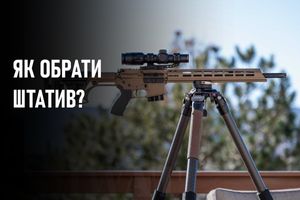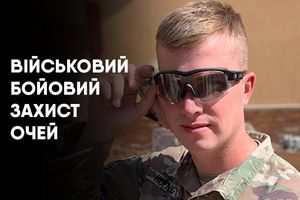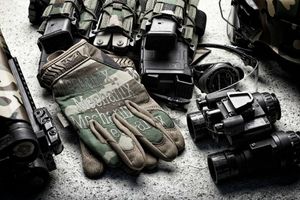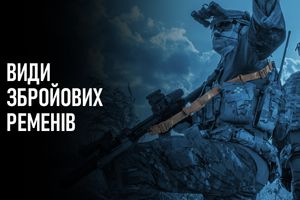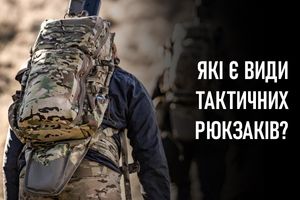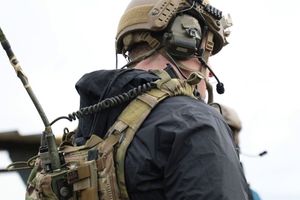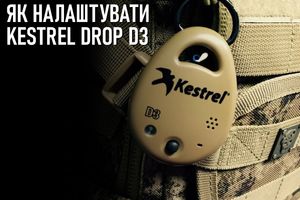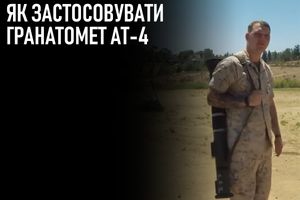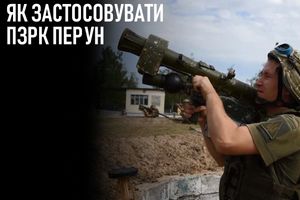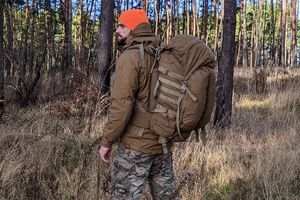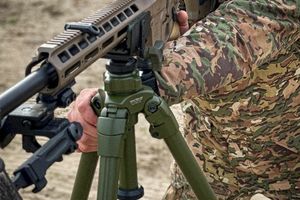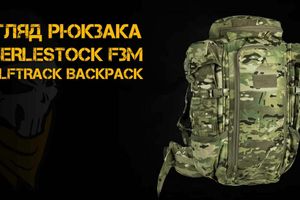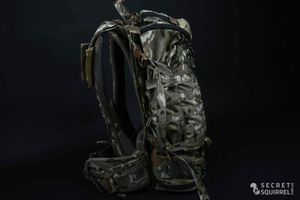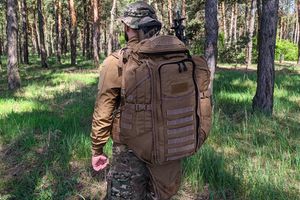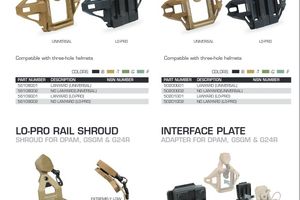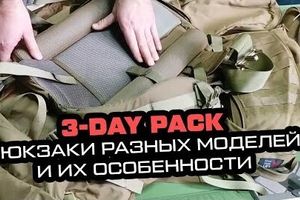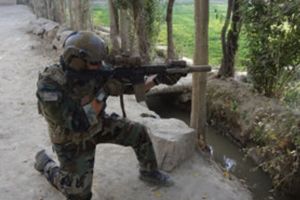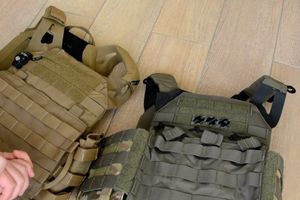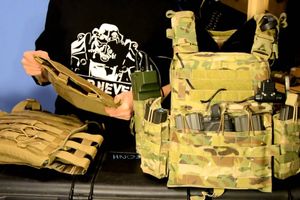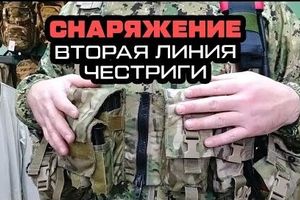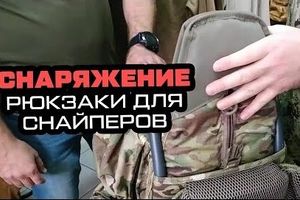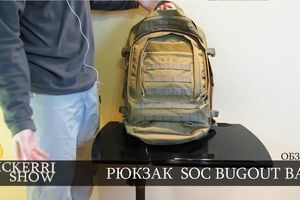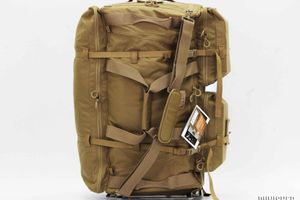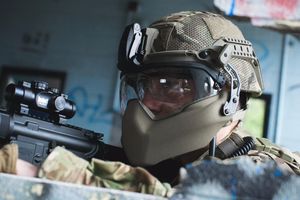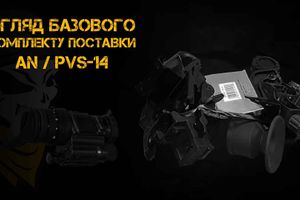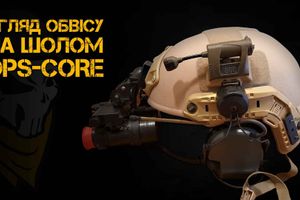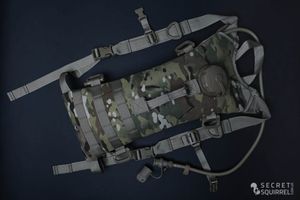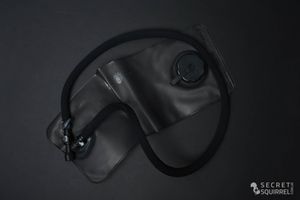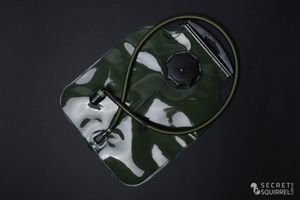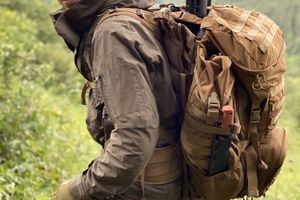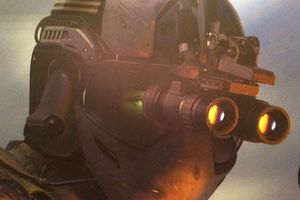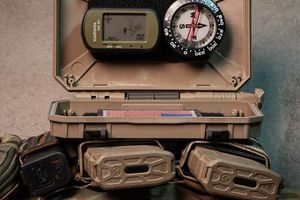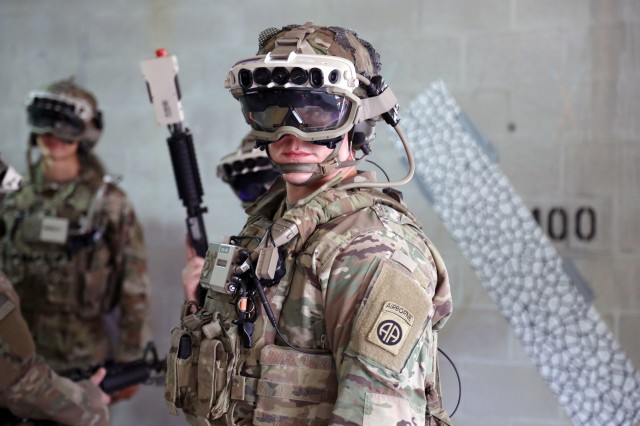
FORT PICKETT, Va – United States Department of Defense and Army leadership weathered a tropical storm and pandemic to visit Soldier Touchpoint 3 of the Integrated Visual Augmentation System (IVAS) at Fort Pickett this October.
Representative Mac Thornberry (R-TX), Ranking Member of the House Armed Services Committee, spoke to a group of Soldiers, Marines, and team members about the project’s inception.
“It was clear to us a few years ago that if we kept doing business the way we'd always done business we really couldn't defend the country, with the way the technology was changing, the way our adversaries were moving,” said Representative Thornberry. “So we did put in some other authorities, but it required people to take those authorities and implement them.”
He said that it was critical to get the process right, “so that we can get the best technology that the country, and not just the military, not just traditional defense contractor, the best technology that the country can produce in [Soldiers’] hands as fast as we can. That's what you all are doing, that's why I think it's such a big deal.”
The effort to find the country’s best technology has brought together both traditional and nontraditional contractors throughout industry.
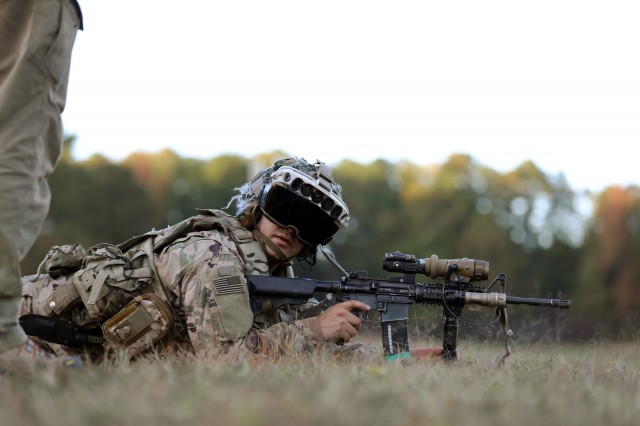
“We're very excited about how the industry is working with us to bring these cutting edge technologies, giving them to our Soldiers so they get overmatch on the battlefield,” said Army Chief of Staff Gen. James McConville. “They were quickly able to bring into fruition what we saw today. And that's working together with industry, with our operators, and also our Soldiers with touchpoints along the way, with the authorities that Congress has given us to rapidly bring this capability to our Soldiers in the field.”
However, it did not happen all at once.
“General McConville and I were out here 18 months ago, and the progress has been extraordinary,” said Secretary of the Army Ryan McCarthy. “This is a transformational change for the Army and we're on the right track to field this by the end of fiscal year 21.”
“We were incrementally improving the night vision goggle to help Soldiers, and then we came in with a system that's fundamentally changing the way we do business,” said McConville.
“I think it's going to save Soldiers lives, I think it's going to make them more lethal on a battlefield, and we're very excited about where we're going with this,” he said.
IVAS leverages tactical mixed reality to increase the warfighter’s battlefield awareness and ability to rapidly identify potential threats and take decisive action. The IVAS enables tactical planning, networked information sharing, and an augmented reality training environment that enables Soldiers to fight multiple ‘bloodless battles’ before engaging the enemy.
“We realize that not only can you use it as a mechanism to rehearse a unit to train, but also day and night marksmanship, navigation day and night, live feeds from intelligence surveillance reconnaissance assets, much greater situational awareness for a Soldier,” said McCarthy.
The IVAS system also has a platform integration element that was showcased on a Stryker vehicle at the STP 3 demonstrations.
"For squad dismounts right in the back of the Stryker vehicle, the 360 situational awareness, visioning behind those steel walls of that vehicle, to be able to look at buildings and the woodline so they can make a determination if it's safe to dismount their vehicle, this is the type of capability that's going to give us a much greater lethality and range for a small unit,” said McCarthy.
The Soldier Touchpoint 3 event will be followed by tests in hot and cold weather conditions as the system continues to iterate towards the Capability Set 4 systems, Initial Operational Test and Evaluation, and First Unit Equipped to Soldiers in the Fall of 2021.
Source: https://www.army.mil/article/240918/?dmd&fbclid=IwAR0L7rY8aQvmJkCeNBj0g4DYPA6oK0YVV2RmuGRcz26B0Iyyp7_BTfmiUfA
Author: Army.Mil










































































































































